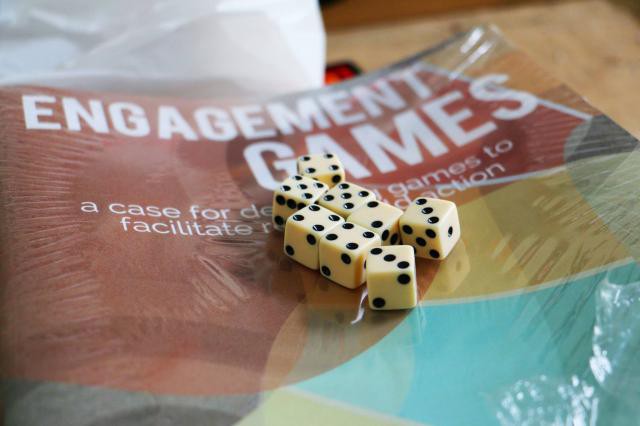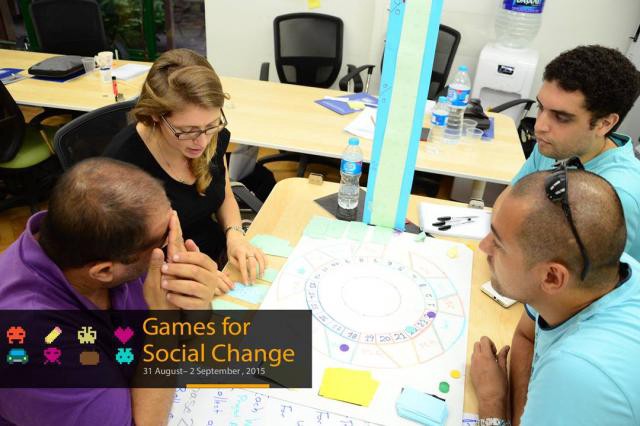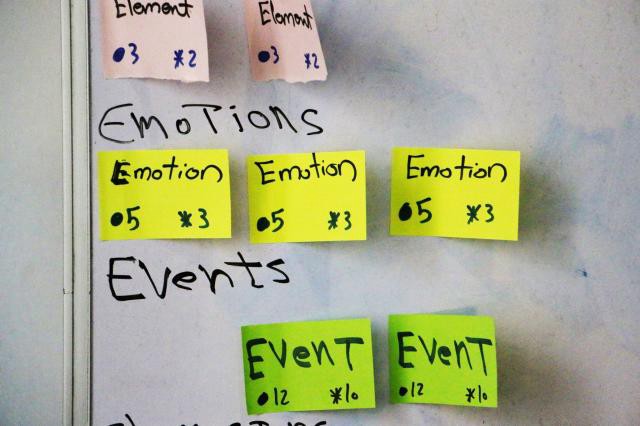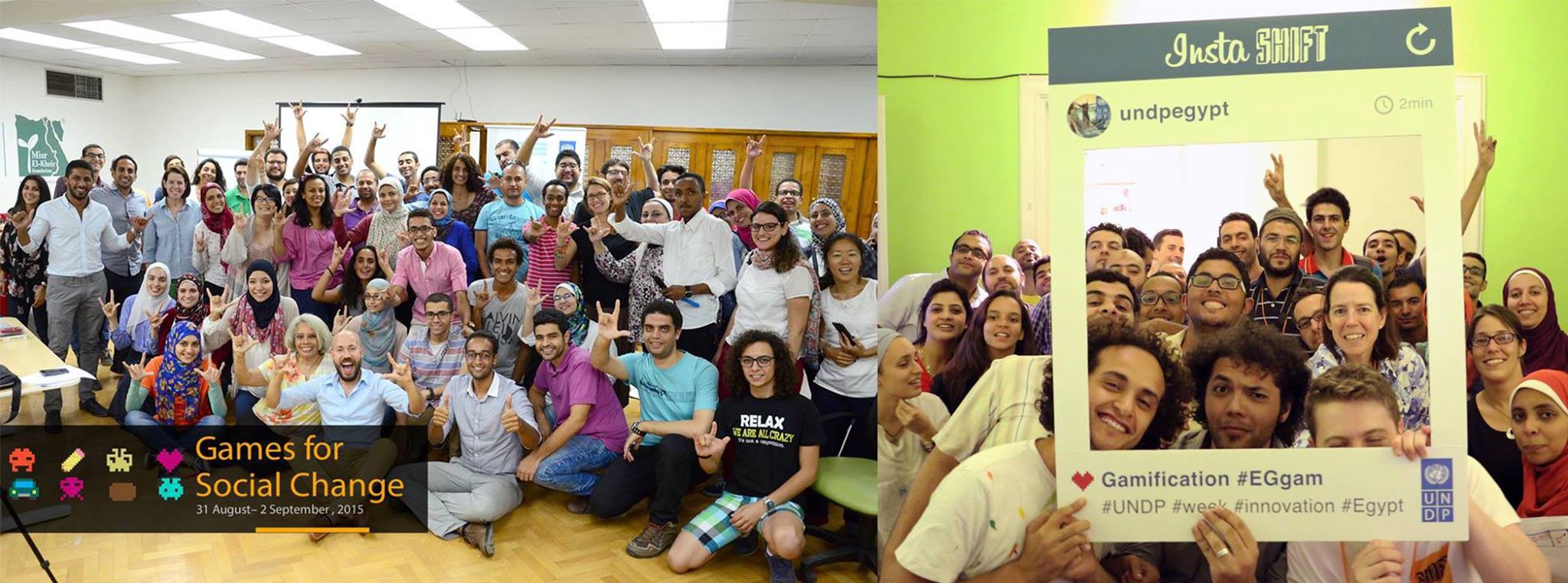Finding the Balance between Seriousness and Fun: Games in Development
Tuesday, December 8, 2015
By Engagement Lab (Gazbia Sorour)
10/22/2015

*Originally published by UN Teamworks
Working in development, such a “serious” field, and talking about games might seem like two topics that do not coincide. Well, surprise! Games and development do compliment each other and can achieve real social impact. As the Innovation for Development Team in the United Nations Development Programme (UNDP) in Egypt, we have been experimenting with different development tools, one of them being games; and dare I say, it has been a successful experience.
The big question on your mind probably is: How can we use games in the development context?
Games are an up and coming trend in doing development business innovatively. By using games, you can basically “trick” players to learn things they would not normally find interesting and at the same time change their real world behaviors. Games can be used to measure the extent in which mindsets and behaviors change by observing the decisions or moves players make.

Games can have a tremendous effect if used in the right manner because** games can:**
Simplify complex issues;
Engage and incentivize people to learn new things;
Serve as an equalizer, meaning, to bring different stakeholders together that wouldn’t normally interact at the same level, to play together;
Create empathy by putting players in other people’s shoes;
Simulate a real world system and empower real world actions;
….but most of all games are fun!
Our journey began in September 2014, when UNDP launched a global initiative called “SHIFT Week”. The purpose was to encourage Country Offices to host local events around innovation; we chose games. With the support of the Engagement Lab, a games and civic media lab, based in Emerson College in Boston, USA, we held a public session on games for social change and a two day workshop, garnering the interest of over 600 youth.
Some of the best games that came out of the workshop tackled issues such as Hepatitis C prevention, awareness on social entrepreneurship and educational games for children.

We encouraged the teams to continue developing their ideas by providing further technical support and sending the top three teams that displayed the most progress to the Engagement Lab for a one-week game design camp. We held monthly play testing sessions, the Engagement Lab provided virtual feedback and two of the teams joined an accelerator programme in Egypt to start their own business, one of them being Shaghaf Edu.
We held a second round of the workshop from 31st August 2015 to 2nd of September 2015. But this time, we decided to focus on games for civic engagement and entrepreneurship. We are expanding our programme by training 20 youth on how to facilitate the workshop in order to spread the principles of game design for social change around Egypt. The trainees will be supporting us in following up with the teams.
To conclude, games have proven to be a powerful tool in development. Our aim is to build a community of Egyptian game designers, while at the same time, empowering youth to take initiative in this context. We also hope to spread the knowledge around how games, if used correctly, can have a real social value.
